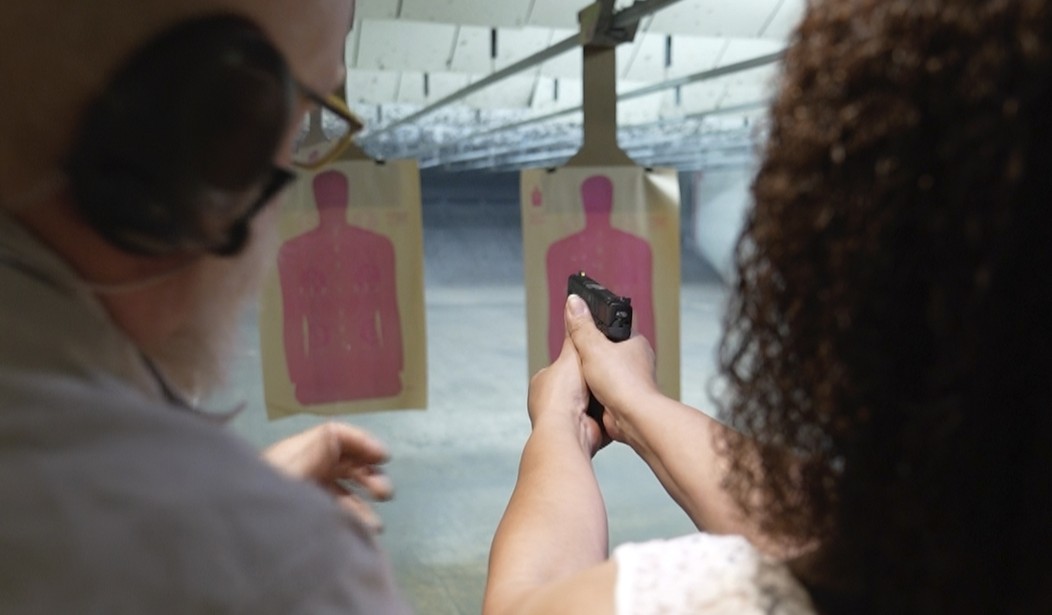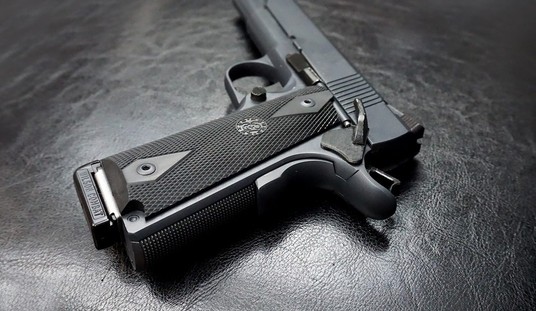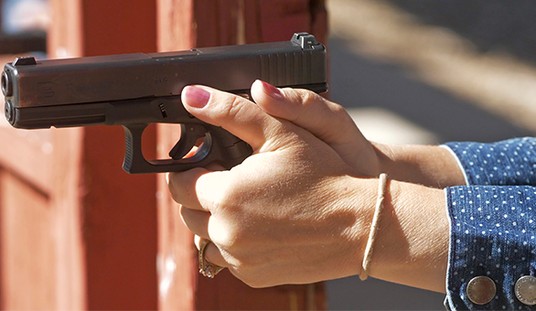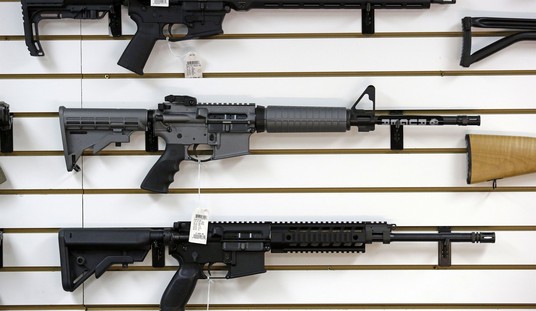What is 'Gun Culture 3.0'? Frankly, I don't even think it exists, but according to sociologist Jennifer Carlson, it's a mix of paranoia and support for political violence and it's "a new reason why your neighbor bought a gun."
Carlson has made a career out of examining "how guns shape American life", and while she professes to wanting "a better gun debate", I often feel like she looks at gun owners as creatures to be studied rather than just seeing us for who we are. There are anywhere between 80 and 100 million gun owners in the United States. The idea of a unified "gun culture" is silly, in my opinion, so I'll admit to starting from a position of skepticism when it comes to "Gun Culture 3.0".
The 1.0 version is firearm ownership based on hunting, often animated by a mythologized Western frontier. Gun culture 2.0 is self-defense-oriented, motivated by overwhelming concerns about violent crime that emerged in the 1960s. For years, gun-owning Americans have told pollsters that the No. 1 reason they own guns is to protect themselves in dangerous situations.
But that broad motivation conceals a shift in what many — though not all — gun owners feel they now need protection against. Borrowing from the militia movement, which identifies government tyranny as a key reason for firearms ownership, Gun culture 3.0 is all about perceived political threats unleashed by those no longer invested in normal guardrails — whether rogue government agents or rogue private individuals.
I dunno. Gun culture 3.0 sounds a lot like Gun Culture 2.0 to me. It's still about protecting ourselves from dangerous situations, it's just that those situations don't just include carjackings, home invasions, or armed robberies.
Since the COVID pandemic and the upending of American life four years ago, many of us have thought long and hard about government overreach. And as our politics becomes ever more fractured and polarizing, it's no surprise that some Americans are choosing to buy a gun for self-defense because they're concerned that some nut who disagrees with them politically might decide to attack them. Those kinds of incidents are rare, thankfully, but that doesn't mean they never happen. New Jersey, Michigan, and Massachusetts are just a few of the locations where support for a candidate or cause has led to violence.
There's no evidence that gun owners are more likely than non-gun owners to commit these acts of violence, but it seems like Carlson still wants Americans to be very afraid of gun owners; especially when it comes to those who own AR-15s and like to exercise their right to carry.
Although gun owners are modestly more likely to believe that political violence is justified than their non-gun-owning counterparts, they are not more likely to express willingness to engage in such violence. Nevertheless, there is evidence that certain subgroups of gun owners may be. According to a recent study, 42% of assault-style-weapon owners say political violence could be justified, as did 56% of gun owners who carry all or most of the time.
Such attitudes betray right-wing distrust of government and a hard-line embrace of the 2nd Amendment. And yet, the same study reported that 44% of a different but potentially overlapping subgroup — new gun owners — also agreed that political violence could be justified. Disproportionately, new gun owners are women and people of color, and they tend to lean liberal as compared with existing gun owners. They too are part of an emergent gun culture 3.0.
While Carlson presents this as some sort of new phenomenon, look at what the authors of the study had to say about their findings:
Contrary to expectation, support for and willingness to participate in political violence in this cohort showed little change from 2023 to 2024, an election year in the USA.
The research defied the expectation of the study's authors, who include Dr. Garen Wintemute, the chief gun control academic in the state of California. I appreciate him at least being honest enough to admit that he thought support for political violence would increase as we get closer to a presidential election, and I'm glad to see he was confounded by the results of his survey, which showed no change.
The belief that political violence can sometimes be justified doesn't mean that it's justified now, or would be in the near future. The study not only asked that broad question, it asked about 17 specific scenarios ranging from "To return Donald Trump to the presidency this year" to "prevent discrimination based on race or ethnicity." The were wildly differing answers depending on the stated goal of political violence; just 5.3% of respondents, for instance, said violence would "usually or always" be justified to return Trump to power, while 2.8% said violence would usually or always be justified to "oppose Americans who do not share my belief."
These are small numbers, but they still supposedly represent the views of millions of Americans, even though we don't have an issue with widespread political violence. My guess is that most of those folks aren't interested in committing an act of politically motivated violence themselves, even if they believe there are some scenarios where it would be justified. But Carlson remains convinced that "Americans across the spectrum are turning to firearms as a tool of last resort" to help them feel more empowered, or at least in control of their personal safety in a world that feels increasingly like it's spinning off its axis.
I'm just not sold on Carlson's theory, at least when it comes to the propensity for these new gun owners to commit acts of politically motivated violence. It's not "Gun Culture 3.0" that I'm worried about, it's the conditions that have led more Americans to conclude that owning a firearm for self-defense in case there's civil unrest and/or political violence is a good idea. I'm glad these folks are embracing their Second Amendment rights, but I don't have to be happy about their reasons.
We can depolarize everyday life, calling out divisive behavior and labeling disinformation for what it is, even among our political allies, and working — no matter how hard it might be — to approach those on the “other side” with curiosity. Maybe even compassion.
Neither gun ownership nor gun limits will address the underlying fear and polarization that feeds gun culture 3.0. We have to address our withered capacity to live with one another.
Again, the issue isn't "gun culture", and the fear and polarization she writes about isn't confined solely to gun owners. What Carlson is describing is a deeper fault line that doesn't just run along the gun-owner demographic. It's what happens when half the country is labeled a fascist or Nazi for supporting the Republican candidate. It's what happens when people are told they're bigots for wanting to enforce immigration law, or homophobic for not wanting a pre-K reading group to become the stage for a drag show. And yes, it's what happens when people are told they care more about their guns than their children, or that the only reason they want to own an AR-15 is to commit mass murder.
Carlson may be wrong about "Gun Culture 3.0", but she's right that we have to address our withered capacity to live with one another. It starts by simply recognizing the humanity of those we disagree with. Unfortunately, that's a bridge too far for many anti-gun activists on the left. who want to denormalize and demonize those of us who proudly defend our right to keep and bear arms.
In their view, if you don't support their "solutions", you must be in favor of "gun violence". You're a monster, not a mom or dad who loves their kids and believes the Second Amendment protects a fundamental civil right. If Carlson is really interested in depolarizing everyday life, she should call out gun control culture for a change instead of trying to give Americans a new reason to be scared of their neighbor.









